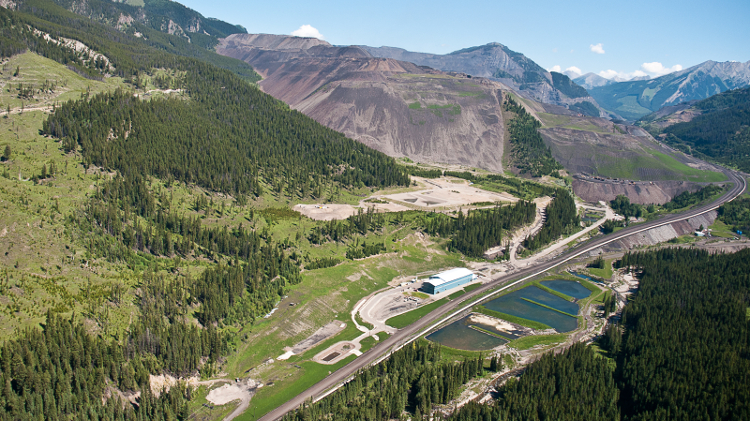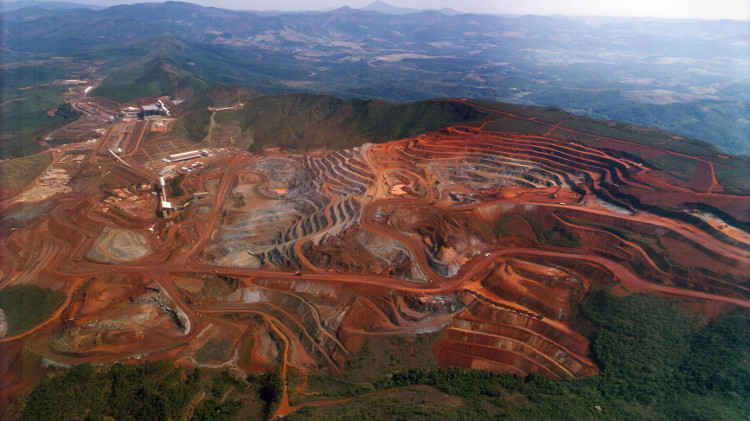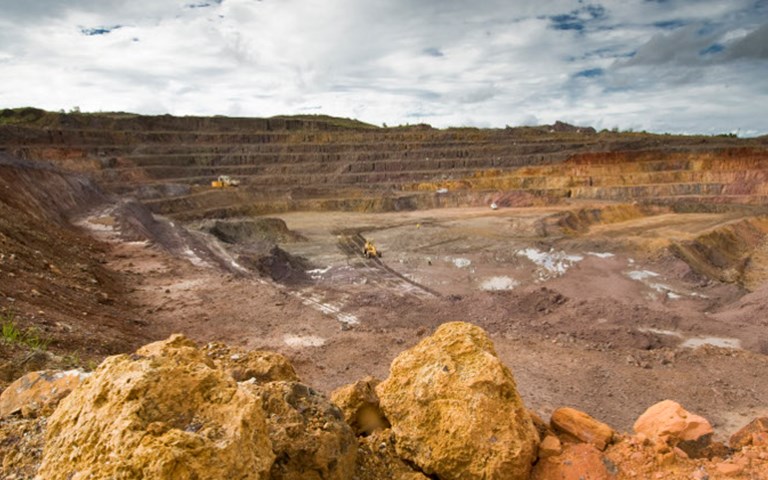Katanga calls its KOV open-pit mine in the DRC the world's largest high-grade copper resource. Both Katanga and its parent company, Glencore, are implicated in the Paradise Papers investigation. Courtesy of Katanga Mining
Previously unknown details about Glencore’s business practices have been revealed through the Paradise Papers investigation into offshore business practices. The investigation revealed that Glencore diverted up to AU$25 billion through tax havens and lent money to a firm connected to Israeli billionaire businessman Dan Gertler during negotiations for a cobalt and copper mine in the Democratic Republic of the Congo (DRC) owned by its subsidiary, Katanga.
The 13.4 million documents related to offshore investment were leaked to German newspaper Süddeutsche Zeitung and shared with 95 media partners across the world through the International Consortium of Investigative Journalists (ICIJ).
The leaked files provide evidence of secretive lobbying that helped Katanga, a company Glencore was a shareholder in at the time, acquire mining licenses in the DRC. Katanga, which was later taken over by Glencore, paid a price that was considered by critics to be below the true value of the licences.
In 2009, according to the Guardian, Glencore made a US$45-million loan to a company owned by Gertler, an Israeli billionaire and diamond heir who has been considered “an unofficial gatekeeper for mining deals across the [DRC].” While the loan was previously reported, it was not known that Gertler was involved. It came with a caveat: the loan would be repayable if a mining agreement for Katanga was not secured with DRC officials.
A friend of Congolese president Joseph Kabila, Gertler has been accused of bribing officials in the DRC and in 2013 the Africa Progress Panel estimated that five undervalued business deals with companies connected to Gertler cost the DRC at least US$1.36 billion.
This news follows an investigation launched this summer by the Ontario Securities Commission. The regulator contends that Katanga, which is listed on the TSX, made $100 million in payments to Gertler.
RELATED: Rick Stapenhurst explores how miners can reduce their exposure to corruption risk
Gertler’s lawyers told the Guardian that he denied all allegations in the reports and was not given the chance to comment before they were published. Gertler’s business dealing in the DRC have been the focus of an ongoing investigation by the United Kingdom’s Serious Fraud Office.
The Guardian also reported that Glencore's Australian arm was involved in cross-currency swaps of up to AU$25 billion in 2013. Though legal, this type of swap has been previously investigated due to government suspicion that it is used to avoid tax payments.
In response to the Paradise Papers revelations, Glencore posted a news release on its website. The company said it complies with its tax obligations “in line with the laws and regulations in the countries and territories in which we operate.”
Additionally, the statement said the company has “recently re-domiciled all of its Bermuda entities (except three) so that they are now tax resident in Switzerland (where the company is headquartered) or the United Kingdom.”
The documents pertaining to Glencore were acquired from the Bermudian law firm Appleby, of which it is a client.
The CBC reported that between 2011 and 2013, Appleby targeted new clients in Canada – particularly in the mining industry. Among the firm’s networking trips was attending the annual PDAC convention in Toronto. According to the CBC, the Paradise Papers showed that in 2014 Appleby’s clients included “at least 17 Canada-based resource companies.”




